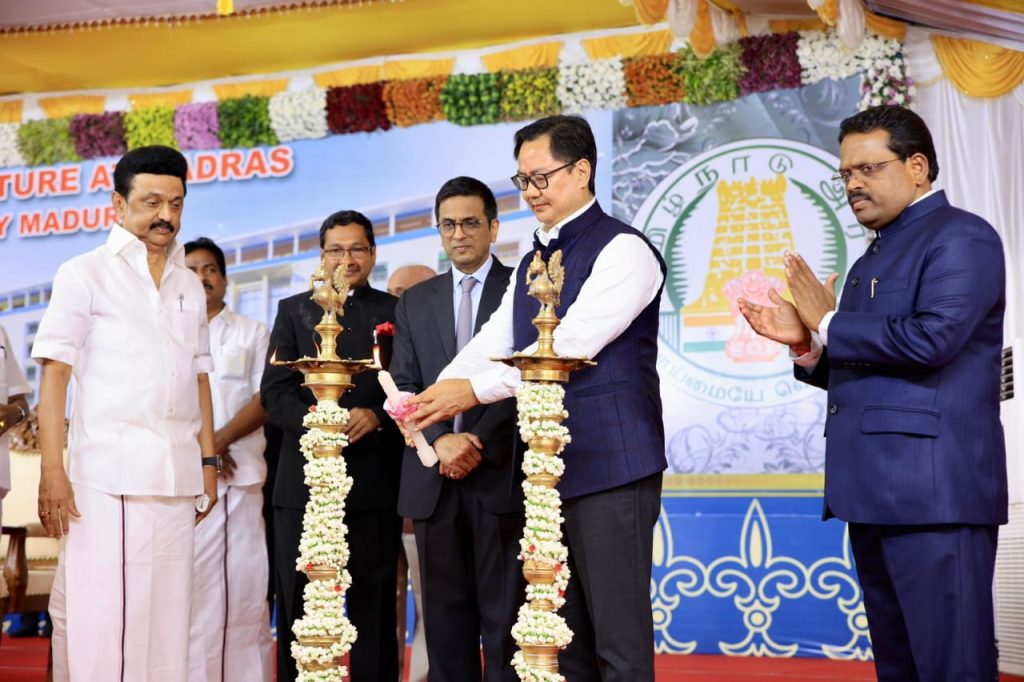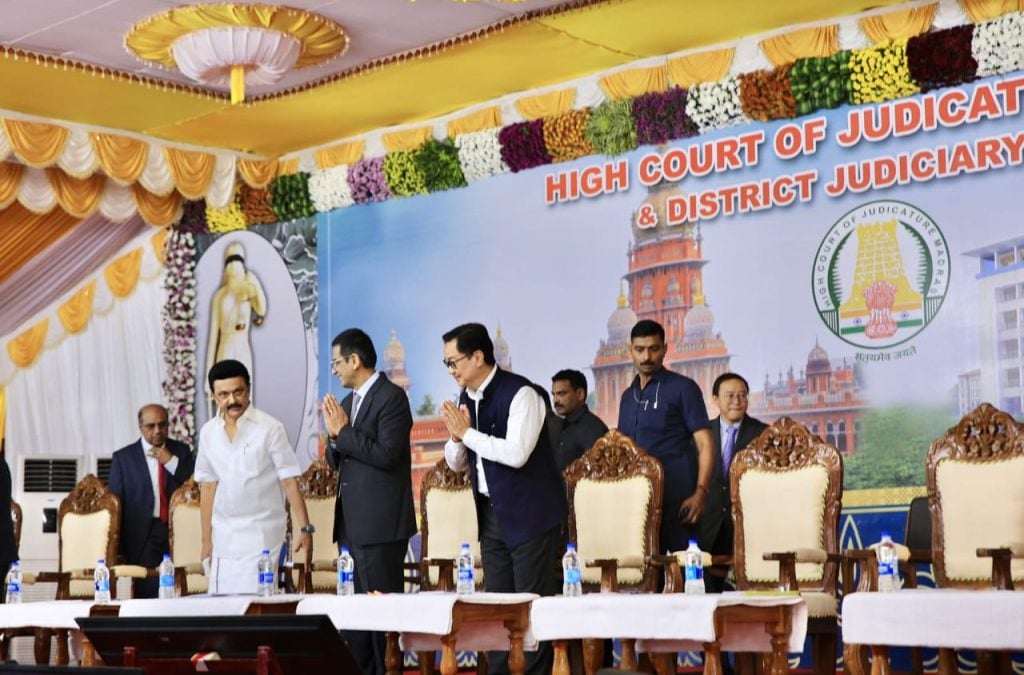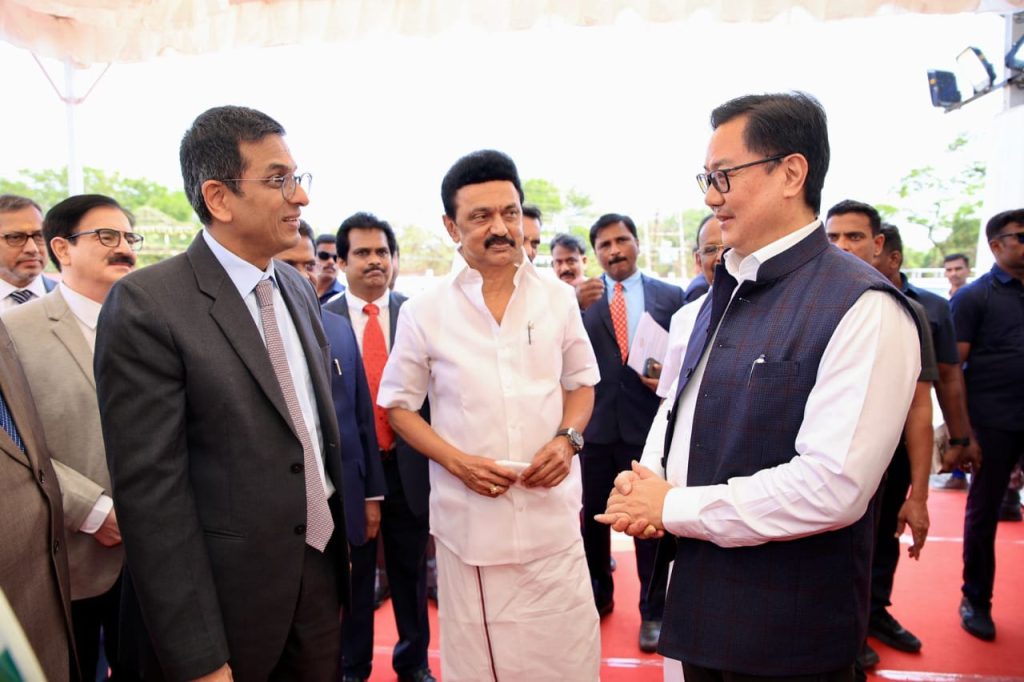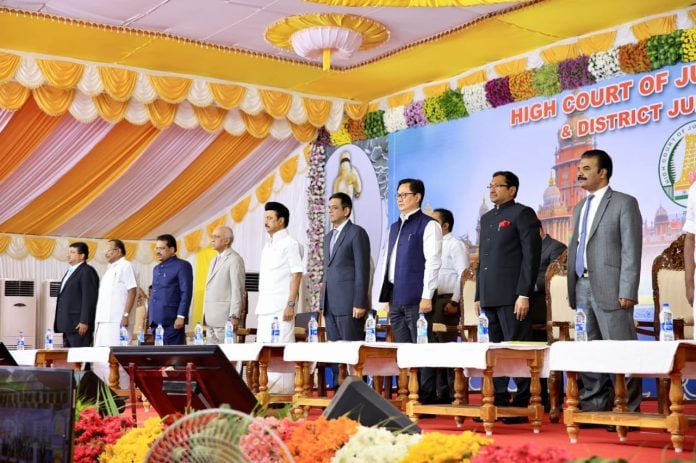Union Law Minister Kiren Rijiju on Saturday that there were bound to be differences of opinion between the legislature and the judiciary, however, they did not indicate a crisis, but were signs of a robust democracy.
Speaking after inaugurating the Chief Judicial Magistrate Court in Madurai of Tamil Nadu, the Union Minister said the relationship of the legislature with the judiciary was excellent.

He said sometimes he felt sad about media reports, which alleged that there were differences between the Supreme Court and the government.
Stating that the country was not being ruled by a dictatorial king, Rijiju said such differences cannot be termed as a crisis. Both the legislature and the judiciary had the right to criticise each other, but when it came to national interest, he said they were one entity. He asserted that there was absolutely no problem within the different organs of the State.
He revealed that work was underway to reduce the pendency of cases, saying that he was hopeful of a major solution soon for the problem.
There may be a separation of power between the executive and the judiciary, but that could not stop the judiciary and the legislature from working together, said Rijiju, adding that the two organs of the State should work together as a team to identify and tackle challenges like pendency of cases.

Speaking about the functioning of the Indian judiciary, he said judges in several countries lived a very comfortable life, which was more like a vacation, dealing with just three to four cases a day.
However in India, every judge was dealing with at least 50 to 60 cases everyday. He said he could not imagine the kind of mental pressure they went through, adding that it must be immense.
As per Rijiju, the constant criticism that judges were unable to deliver justice was not true. He said the disposal of cases in India was faster than other countries, but since the number of cases coming up was very high, the pendency could not be reduced to a great extent.
He said the only solution to the problem was having better infrastructure and mechanism, along with strengthening the Indian judiciary.
Talking about delivering justice to the common man, the Union Minister said language played an important role. He said he would be happy to see all courts in Tamil Nadu using Tamil language. However, this could pose a challenge in the Madras High Court, noted the Minister.
Calling Tamil a classical language, which the country was proud of, Rijiju said he would like to see it being used in the Supreme Court also, which could not be a far-fetched dream, given the advancement in technology and legal transcripts.
Congratulating the people of Tamil Nadu for this new project, the Minister said the judicial infrastructure in Tamil Nadu was comparatively better than many states in India. He said last year, Rs 9000 crore were allocated for district and other courts in the state.
Rijiju said the Law Ministry was pushing hard for utilisation of funds, so that the allocation for judiciary in the Budget could be increased. He said in some states, requirements of the courts and the understanding of the government had some shortcomings.

The ceremony was attended by Chief Justice of India (CJI) D.Y. Chandrachud, Supreme Court Judges Justice V. Ramasubramanian and Justice M.M. Sundaresh, Chief Minister M.K. Stalin, Acting Chief Justice of Madras High Court Justice T. Raja and Advocate General R Shunmugasundaram.
The CJI, on the occasion, laid the foundation stone for additional court buildings in the District Court campus at Madurai.
State Minister of Law S. Regupathy; Minister of Finance, Planning, Human Resource Management Dr. Palanivel Thiaga Rajan; Minister of Commercial Taxes P Moorthy and Chief Secretary Idai Anbu, among others, were present on the occasion.


